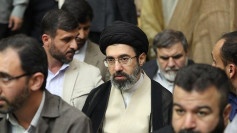Canada will not send representatives to the 2022 Winter Olympics, effectively joining the U.S., UK and Australia in a diplomatic boycott of China over alleged human rights breaches.
The statement came after the White House, Australia's government, and the UK's government announced diplomatic boycotts of the Beijing Olympics in February.
China has stated that it will respond with "strong countermeasures."
"Many partners around the world are gravely concerned about the Chinese government's recurring human rights breaches," Canadian Prime Minister Justin Trudeau said Wednesday.
"That is why, as of today, we have decided not to send any diplomatic representation to the Beijing Olympics," the prime minister said.
Athletes from countries participating in the diplomatic boycott will still compete in the Games, and Trudeau has said that Ottawa would give its full support for the Canadian team.
Canada, whose relations with China have deteriorated in recent years, is a world leader in winter sports. At the 2018 Games in South Korea, it finished third in the medal standings.
"We have been quite explicit for many years about our grave concerns about human rights issues, and this is a continuation of that," Trudeau said.
Melanie Joly, Canada's foreign minister, said the country needed to send a strong message to Beijing.
Earlier this week, the leader of the official opposition Conservatives pushed the Liberal government to join the boycott, accusing Trudeau of adopting an excessively lenient stance toward China.
Joly stated that Canada's decision sends a "strong signal" to China without jeopardizing the preparations of athletes for the Winter Games.
Joly stated that the RCMP's primary concern for the country's athletes competing in China is their safety, and that the RCMP will cooperate with the Canadian Olympic Committee to ensure they are adequately safeguarded during the games.
Human rights organizations have lobbied for a complete boycott of the games. Although the U.S. and Australian decisions fall short of such calls, they come at a particularly volatile period for international relations and have drawn a storm of condemnation from China.
Canada's relations with China have deteriorated significantly since China sent to prison two Canadians in December 2018, shortly after Canada arrested Meng Wanzhou, Huawei Technologies' chief financial officer and the company's founder's daughter, on a U.S. extradition request.
Australian Prime Minister Scott Morrison said Wednesday that it's unsurprising that Australian officials will boycott the event following the breakdown of the country's relationship with China in recent years.






